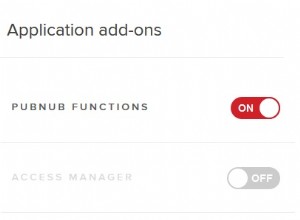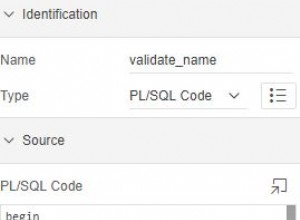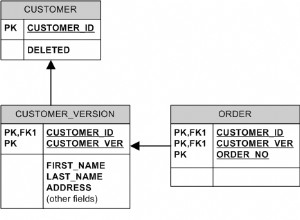Os métodos de atalho podem não ser suficientes para isso. AUTO e PATH não gostam de vários elementos com o mesmo nome. Parece que você teria que usar o FOR XML EXPLICIT comando.
Funciona, mas é trabalhoso.
Amostra:
--Generate Sample Data
--FOR XML EXPLICIT requires two meta fields: Tag and Parent
--Tag is the ID of the current element.
--Parent is the ID of the parent element, or NULL for root element.
DECLARE @DataTable as table
(Tag int NOT NULL
, Parent int
, TaxonomyValue nvarchar(max)
, CategoryValue nvarchar(max)
, CategoryLevel int)
--Fill with sample data: Category Element (2), under Taxonomy(1), with no Taxonomy value.
INSERT INTO @DataTable
VALUES (2, 1, NULL, 1, 'Clothing')
, (2, 1, NULL, 2, 'Jeans')
--First part of query: Define the XML structure
SELECT
1 as Tag --root element
, NULL as Parent
, NULL as [Taxonomy!1] --Assign Taxonomy Element to the first element, aka root.
, NULL as [Category!2] --Assign Category Element as a child to Taxonomy.
, NULL as [Category!2!Level] --Give Category an Attribute 'Level'
--The actual data to fill the XML
UNION
SELECT
Data.Tag
, Data.Parent
, Data.TaxonomyValue
, Data.CategoryValue
, Data.CategoryLevel
FROM
@DataTable as Data
FOR XML EXPLICIT
Gera XML
<Taxonomy>
<Category Level="1">Clothing</Category>
<Category Level="2">Jeans</Category>
</Taxonomy>
Edit:tinha colunas invertidas. Não há mais nível de jeans.




